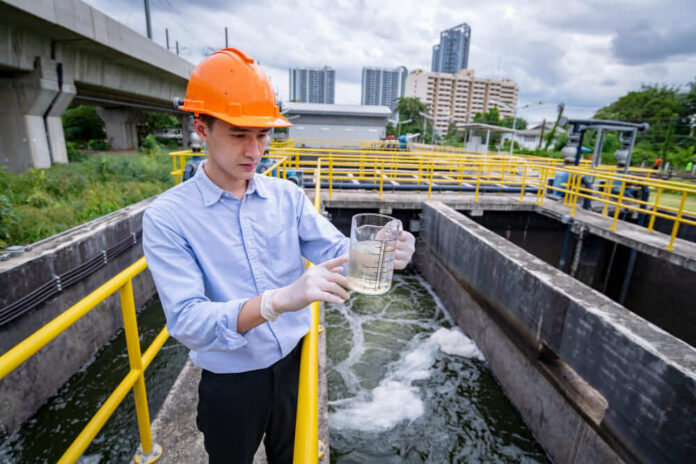All the services, none of the headaches for manufacturers
Manufacturing operations and other businesses have some new choices for financing water and wastewater treatment infrastructure, and they often meet needs better than traditional modes. One such option is leasing. While equipment leasing is commonplace in many sectors, the water sector has not fully adopted it, but the idea is gaining ground.
Some scenarios for leasing water treatment systems include time concerns, such as when the need is expected to be temporary difficult to predict, or require incremental scaling. The growing availability of modular units has allowed more flexibility in the ways treatment is commissioned, and leasing arrangements are keeping pace.
Some parts of water and wastewater treatment planning have always made the process difficult for decision-makers. First, it’s difficult to predict future needs when planning for capacity. Second, concrete is hard to change once it’s poured, and third, treatment infrastructure is costly. Together, these factors force decision-makers to foretell the future and require them to bet big on those projections. Any course correction that can be made in the water infrastructure delivery process is, therefore, vitally important.
Scenarios for Water Treatment Plant Leases
Modular equipment adds flexibility to the planning process. It can be installed and uninstalled, rather than constructed and demolished. Along with lease arrangements, modular treatment can be a lifeline for optimizing capital.
Imagine, for instance, that a factory, office building, or warehouse needs water quickly but has no time or capital to build a permanent plant. A modular plant can be installed quickly and serve until a permanent solution is constructed. The lease allows the company to start treatment without payment for the entire project in advance.
Where an existing treatment operation must undergo extensive refurbishment, a temporary bypass plant can be leased until repairs are completed, allowing operations to continue without interruption.
With modular units, capacity can be added incrementally, a practice sometimes referred to as phased installation. In this scenario, the company can size up in phases as the need arises. The company pays for capacity only when each phase goes online, rather than making the full capital investment at the start.
Saving Money, Time, and Headaches
In all the above scenarios, plant leases can deliver significant savings, optimize capital expenditure, work through cash bottlenecks, and prevent many headaches. A modular plant also can be as permanent as a traditional one, and leases may retain an option to buy at the end of the term.
Conversely, if a water management operation decides to move in a different direction, it has no long-term commitment and can walk away once the lease term is complete. The added freedom could be an important benefit if, for instance, more efficient treatment technology enters the scene.
Perhaps the most immediate advantage of leasing is that the process can move quickly and without involving third-party lenders. Frequently, lessors do not require an upfront payment or ask for only a nominal one. Providers can also fold initial costs into leases, so lessees can pay for everything, including installation, over a long timeline.
Advantages of Water Treatment Plant Leases
There also may be room to negotiate on shipping costs, transportation costs, additional equipment, training, and many other details that will not be burdensome for the vendor to provide but are very valuable to the lessee.
The lease also provides the specialized knowledge, skill, and technical resources of the water infrastructure provider for technology upgrades and quick fixes to keep production moving through breakdowns without sacrificing safety. Leasing is also naturally flexible. Some leases can be prepaid while others include a $1 buyout clause at the end of the term, essentially a lease-to-own arrangement, and terms are variable.
It’s important to choose a water infrastructure company with a great reputation for quality and customer satisfaction. Look for evidence of numerous renewed leases or renewed build-own-operate-transfer agreements and continuing relationships with clients.
A water system has the potential to significantly improve your operation’s ESG profile, so look for companies that emphasize sustainability. You know your operation best, so think about how to structure a lease for the best advantage in your situation but keep an open mind to suggestions from the water professionals as you explore your options together.
Consider exploring innovative technologies integrated into leased systems, enhancing efficiency and sustainability. Technologies like advanced membrane filtration, energy-efficient processes, and real-time monitoring systems can add value to your water treatment operations. Collaborate with providers open to integrating cutting-edge solutions, ensuring your leased plant aligns with the latest industry advancements for long-term success.
















